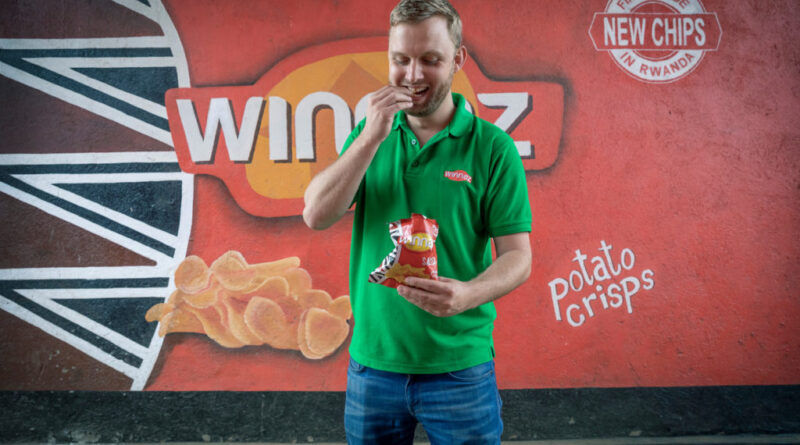Winnaz is working on a “potato crisps culture” in Rwanda
During field research, Wageningen University student Thijs Boer saw that crisps were still unknown in Rwanda. He has now filled that gap in the market with his company Winnaz. The potato farmers are enthusiastic, his manager sees a crisps culture developing in Rwanda – but the breakthrough is yet to come.
The 33-year-old Boer is the first potato crisps manufacturer in Rwanda. A bag for himself can get rid of it: of the packages containing 20 grams of crisps, 24,000 per week rolled off the line last year. He also produces bags of 36 grams or 150 grams, together with more than 50 employees. He also sells his Winnaz brand, from the word “winners”, across the border, in Uganda and Eastern Congo. Burundi and Tanzania are on his wish list. “And I’ve already sold some in South Sudan.”
How did he come up with the idea of baking crisps in Africa? Through a study at Wageningen University. Boer conducted field research in Rwanda into ways to increase farmers’ productivity. The entrepreneur in him saw that Rwanda did not make crisps yet, and crisps simply need farmers, potato farmers. With a subsidy from the Netherlands Enterprise Agency (RVO) and money from his parents (Boer: “My father used to be a farmer”). He launched his company in 2015.
“I pay a premium to about 225 farmers to deliver to me,” says Boer at his factory in Musanze, in Rwanda’s potato region. “One of the farmers who started with 100 by 100 meters of land now has eight times as much.”
Egide Niyibizi (30) has grown from his internship to the production manager of Winnaz. “I never ate crisps and now I eat them every day, haha.” Niyibizi sees the emergence of “a crisps culture” in Rwanda. He explains: “Crisps always came from abroad and were only for rich people in large supermarkets. Now you see Winnaz everywhere. “
Philbert Ntitenguha (31) is the company’s potato expert. The agronomist explains that the potato crisps factory contributes to “the potato value chain” through the collaboration with local farmers. The crisps also contribute to his marriage: “My job allowed me to finally get married, a woman wants financial stability.”




